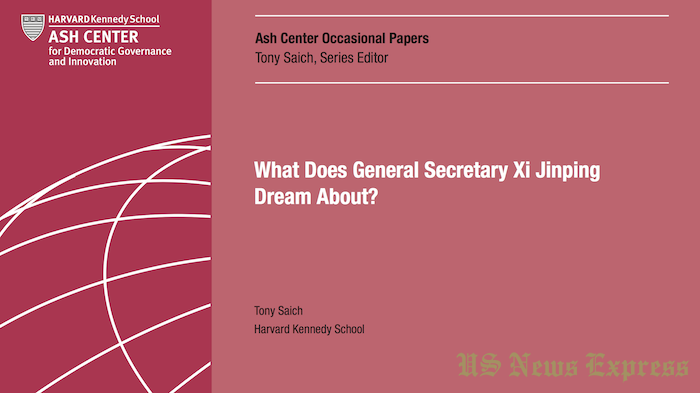
Cambridge, MA – Ash Center Director and Daewoo Professor of International Affairs Tony Saich delves into the many challenges faced by China’s leadership in his new paper, “What Does General Secretary Xi Jinping Dream About?,” published as part of the Ash Center’s Occasional Papers Series.
As China’s political leaders prepare for next month’s 19th Party Congress of the Chinese Communist Party, all eyes are turning to General Secretary Xi Jinping, as he sets the stage for his second five-year term. In his paper, Saich tries to answer the fundamental question of how Xi plans to wield his immense political power during his next five-year term — and to what end.
On the political front, Xi has developed a multipronged political strategy, which includes strengthening obedience to the party, promoting traditional Chinese culture as well as a resurgent Chinese nationalism, combatting corruption, and exerting greater societal control. On economic matters, Saich argues that “there is no doubt that gradually there has been greater recognition of the role of the market in producing efficiency gains and more effective use of investment funds,” but that China’s leaders will continue to see “state guidance over economic development as crucial.”
When it comes to its growing role in the world, China is also at a crossroads. “With US withdrawal from the Paris Climate Agreement and from economic leadership within the Asia region, the question arises as to whether China will take on the mantle” of global leadership, says Saich. However, the declining role of the US in Asia does not mean that China will automatically fill the gap, Saich argues, as it lacks the strong network of regional partners that Washington enjoys, and its territorial assertiveness has raised concerns about Beijing’s intentions throughout the region.
In the absence of bold reforms touching on the core of party power, Saich offers the possibility that over the medium to short term, China would “continue the fluctuation of soft and harder authoritarianism that would make bold initiatives unlikely.” Simply put, says Saich, “it will be difficult to push through the kind of reforms that will dislodge the current beneficiaries.” An outcome, Saich concludes that would not be encouraging, but “quite likely.”
About the Ash Center for Democratic Governance and Innovation
The Roy and Lila Ash Center for Democratic Governance and Innovation advances excellence and innovation in governance and public policy through research, education, and public discussion. Three major programs support our mission: the Program on Democratic Governance, the Innovations in Government Program, and the Rajawali Foundation Institute for Asia. For more information, visit ash.harvard.edu.




















